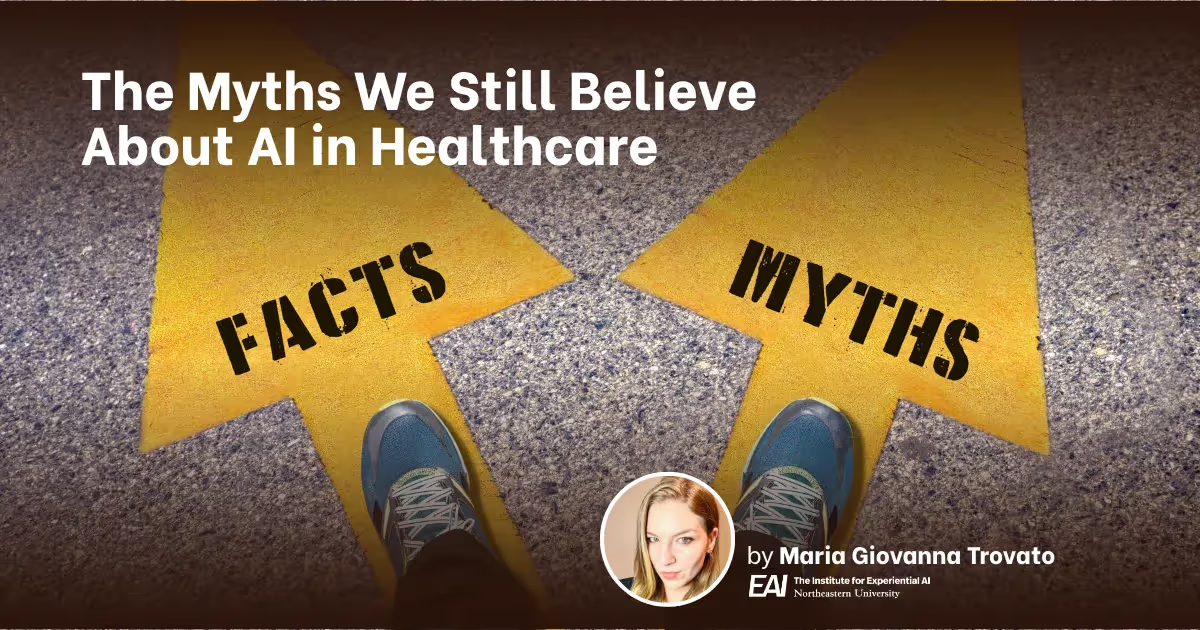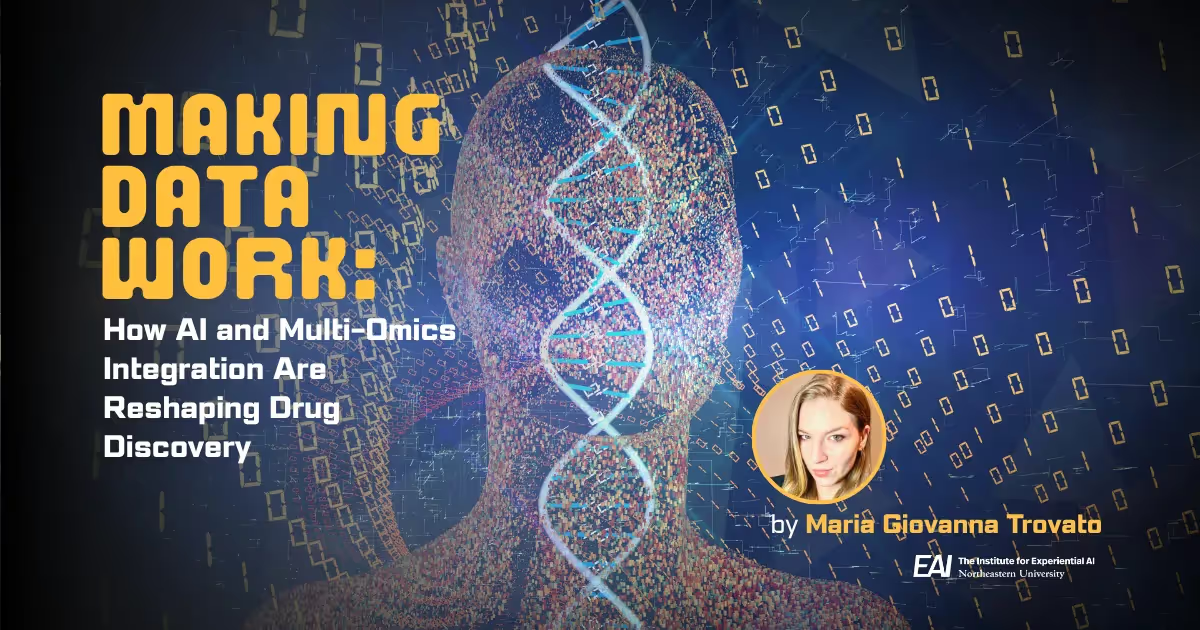Northeastern University Leaders Share Vision for Next-Generation Healthcare
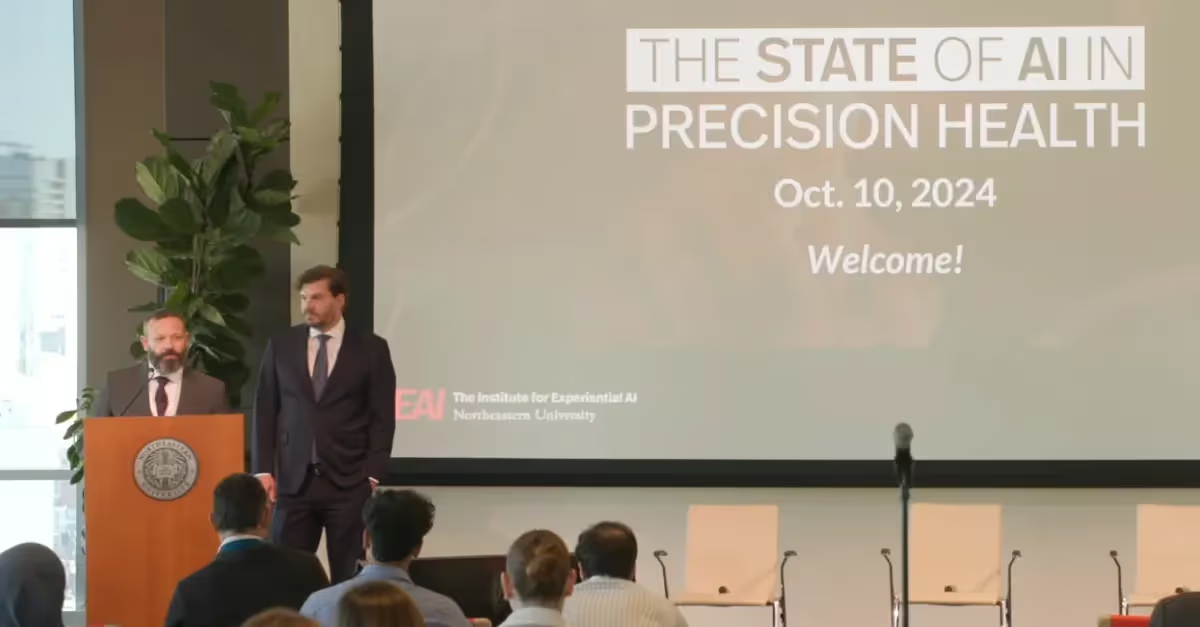
At The State of AI in Precision Health conference, two directors from the Institute for Experiential AI outlined a future where artificial intelligence is used to uncover new insights into complex diseases and make healthcare more convenient for patients everywhere.
Presentations by Director of AI + Health Gene Tunik and Director of AI + Life Sciences Sam Scarpino provided an inside look at how we are partnering with leading organizations to develop AI solutions that are bringing huge improvements in patient care and biological research.
"Why do I think the opportunity of applying AI is so large?" asked Scarpino. “Neural nets can help us uncover a lot of what's going on in health and disease by modeling extraordinarily complex processes. I am convinced that we can make progress in the life sciences and in the health sciences by bringing artificial intelligence to bear on the hardest problems we are faced with."
The Future of Healthcare Delivery
Healthcare is becoming increasingly decentralized, moving away from large facilities and toward home-based care. Tunik believes AI can make care more impactful in that new landscape.
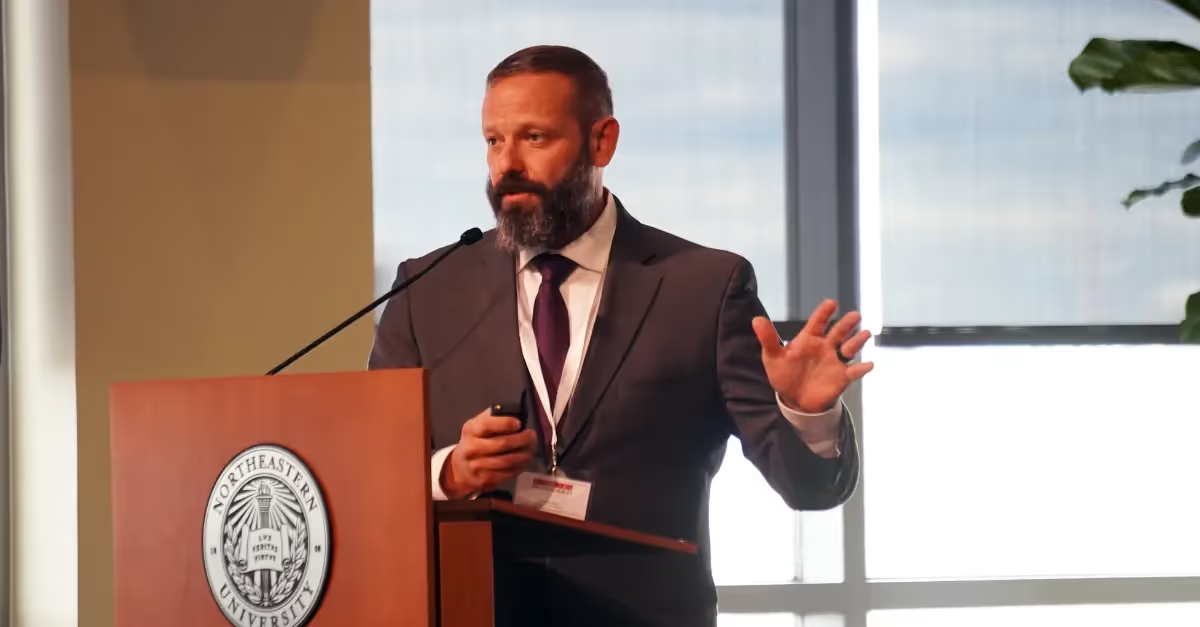
“We’re moving away from brick and mortar facilities, although of course those are still being built,” Tunik said. “We're moving into an ecosystem where health and healthcare is going to be delivered in a decentralized way, at people's homes to enable aging in place and in small clinics and rehab centers, and you're going to have the large healthcare systems operate very much like control towers to triage care to these locations. The success of all of that will rest on technology, data, and AI.”
Tunik’s talk also focused on the human element of healthcare and how AI can enhance, rather than replace, the human touch.
“At the Institute for Experiential AI, we believe it is far more important to know what person the disease has than what disease the person has,” said Tunik, quoting Hippocrates. “I’m not diminishing the value of understanding the disease and biology, but how individuals respond to treatments and diseases is arguably more important.”
This patient-centered philosophy reflects the institute's belief in keeping a human in the loop of AI systems — what we refer to as "experiential AI." That’s why Tunik believes AI systems will need to effectively communicate with patients to be adopted at scale.
"The key point will be whether these technologies can interface with humans the way another human would," Tunik said. "What is the emotional IQ of these technologies? That will dictate the uptake of this."
Driving Breakthroughs in Biological Understanding Through AI
Sam Scarpino’s session highlighted the immense potential of neural networks in revolutionizing life sciences.
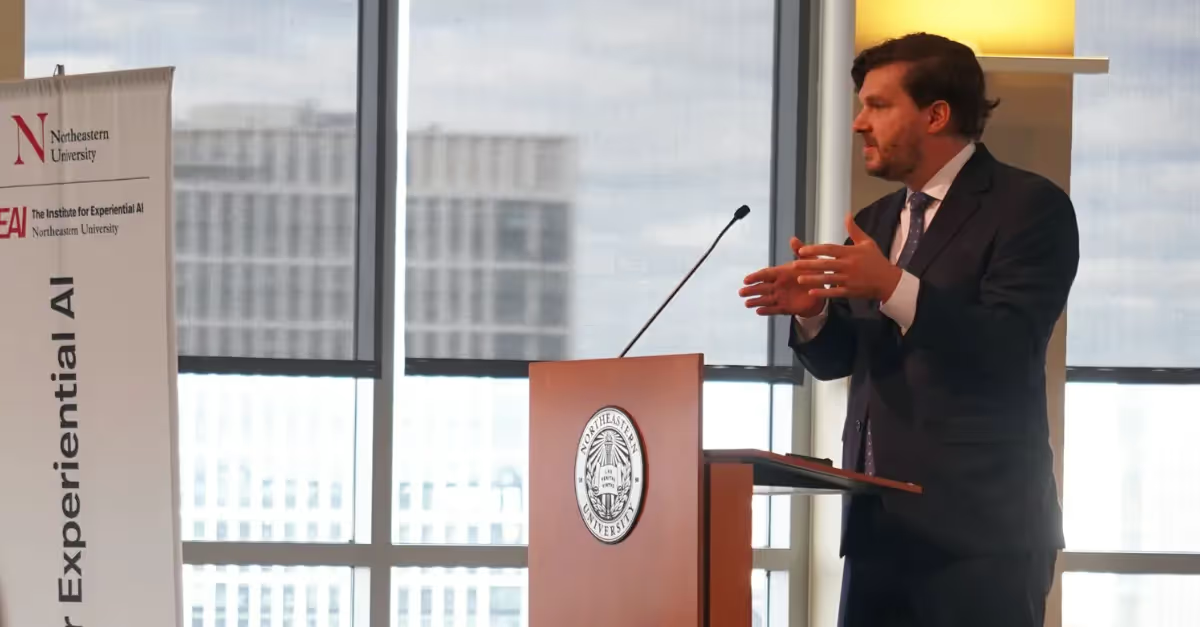
Scarpino explained that traditional bioinformatics tools often struggle to handle the scale of modern big data sets in biology. Neural networks, on the other hand, excel at this, offering unprecedented opportunities to solve previously intractable problems.
AI is already yielding insights into complex diseases. Scarpino showed the packed audience unpublished research demonstrating how AI can process RNA sequencing data from individuals with multiple myeloma, a particularly aggressive cancer, to find new patterns for personalized treatment.
“If we are going to treat complex diseases like multiple myeloma, we have to understand all of the evolutionary context coming with the individual, and that context is going to dictate the way individuals respond to therapy,” Scarpino said. “We have to integrate that into the treatments we’re developing and the care we’re delivering.”
The institute is even drawing inspiration from nature to advance AI capabilities. Scarpino highlighted research from a student in his lab studying how mice learn tasks.
"Re-learning tasks is a real challenge for neural networks, but it is not a challenge at all for mice,” Scarpino said. “We can imbue mathematical properties from the mouse brain into artificial intelligence systems to advance AI and solve complex problems."

Shaping the Future of AI in Health
Both Tunik and Scarpino’s talks illustrate that while AI holds immense potential, it is the combination of AI with human expertise that will lead to meaningful advancements in health. That’s why Scarpino advocates for joining AI systems with experiments run by humans.
"That's what we mean in our institute by experiential AI: Humans and wet labs in the loop," Scarpino explained. "That's important for ensuring AI maintains our values, but I think it's much deeper than that. I think that because of the responsiveness and historical contingency associated with living systems, the only way we can study them is by constantly measuring and remeasuring as we perturb the system through treatment."
As AI increasingly enables drug discovery, personalized treatment, and decentralized care, the focus should go beyond algorithms to encouraging collaboration between multidisciplinary experts across technology, patient advocacy, and health.
The Institute for Experiential AI is already leveraging our world-class pool of talent to help startups, pharmaceutical companies, and nonprofits build advanced AI tools to solve real-world problems in health and the life sciences.
Learn more about partnering with our AI + Health and Life Sciences teams, and explore more from The State of AI in Precision Health.


